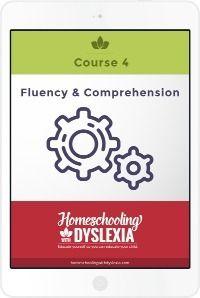I didn’t know whether I should be relieved or disappointed when I learned that 40-60% of people with dyslexia also had some form of attention issue. What I do know now is that some of my kids aren’t naturally organized (ahem) and that they need to be explicitly taught how to manage their time as well as their space, thoughts and belongings. Today’s post will focus on simple strategies for teaching kids time management skills.

A Simple Strategy for Teaching Time Management
Begin by providing your child with a monthly calendar. You can buy one or print one online. Click here for a link to a great site with lots of free calendar templates.
Add important events to the calendar such as holidays, birthdays and other important including afternoon and evening commitments such as music lessons, sports practices, Scouts or Bible Study. We also have our older kids add any classes that they are taking through our homeschool group or at the community college on their calendars. As school assignments come in, add those as well as test dates to the calendar.
Transfer all activities and assignments to a weekly calendar. Click here for a link to some great weekly planning sheets. Teach kids to break up larger assignments, such as reading or studying for tests, into chunks and place them on their weekly calendars. Work backwards from test dates to schedule in enough time for study and review. As your kids learn how much time reading a chapter of science actually takes, they will be better able to schedule the proper amount of time to get the reading done on schedule.
Teaching Tip: A friend of mine shared with me a rule in her house. She will not help a child proof or correct any assignment the night before it is due. It is too stressful for everyone! Teach them to avoid procrastination and plan ahead!
Work with your child as needed. This will be daily at first. Continue to go over each day’s events and guide them through prioritizing and tweaking their schedule until they become proficient enough to tweak it on their own. As with any schedule, they are best used as a guide. Very seldom does a day go just as it is planned.
Time Management…In the Kitchen!
Another fun way that we have worked on time management skills with our kids is to have them plan and prepare the evening meal. Begin by breaking down the job into smaller chunks. So for making dinner this might look like this:
-
- Choose menu
-
- Find ingredients
-
- Shop {if necessary}
-
- Cook
-
- Set table
-
- Serve
- Clean up
Have the child estimate (with your help at first) how long each task will take and work backwards from the time you want your family to eat dinner to know when to begin.
Time management for younger kids
Younger kids can benefit from simple time management exercises as well. Here are a few ideas for beginning to instill the idea and practice of time management in your younger kids:
-
- Chore charts – from the age of 3 and up we have used chore charts to help kids stay on task throughout the day.
-
- Use a timer for dawdlers – kids who struggle staying on task need more accountability and a timer has worked wonders for our dawdlers.
-
- Family calendar – keep a family calendar in a prominent location so that all family members can see it. Use different colors for each person so that even younger kids can easily see when they have something planned.
-
- Don’t overschedule – see above. Family relationships suffer when everyone is running around with no down time.
- Lay clothes out the evening before an event like school or church.
Teaching time management to kids is critically important for their adult success. Start teaching them now how to think ahead, put aside procrastination and use your family’s priorities for making the most of their days.
How have you taught your kids time management skills? Share in the comments below!
Kids (and adults) with dyslexia often struggle with organization, time management, and setting priorities. These deficits are often referred to as Executive Function skills. If your child struggles in this area, you would benefit from my Parent Class on Executive Function.
My latest parent class: Executive Function: Teach Your Child to Organize Their Thoughts, Personal Space and Time is full of tips, tricks and strategies for teaching organization in academics and personal life, for learning ways to control run away emotions and to improve social skills and motivation.
 I first learned about the idea of Executive Function weaknesses during my Orton-Gillingham training. Since then, I have been researching and trying out everything that I could find in an effort to help our own brood of disorganized kids. The result is a HUGE new class packed with reliable, research-based information on how to help your seemingly hopelessly unorganized kids learn strategies to help them in school, work and social situations.
I first learned about the idea of Executive Function weaknesses during my Orton-Gillingham training. Since then, I have been researching and trying out everything that I could find in an effort to help our own brood of disorganized kids. The result is a HUGE new class packed with reliable, research-based information on how to help your seemingly hopelessly unorganized kids learn strategies to help them in school, work and social situations.
You may be one of the few people in your child’s life who understands how having a disability complicates his or her ability to develop these skills.
For more information on the new class, click the course image above or visit our classes page.






Exam is coming so your little one should know how to manage time because time management is very important in every phase of life. And the way you described is really good. Thanks for this post.
Some additional things I did when my children were younger, that I discovered were extremely helpful now that they’re all young adults: we kept a daily schedule, and I’d give them kind of a countdown before before we had to wrap up one activity to move onto the next (10 minutes, 2 minutes, 1 minute… time to clean up…). Another thing was giving them concrete examples of how long activities took… “I need you to wait 20 minutes, that’s as long as our drive to Costco takes.” Or “that takes about as long as a veggie tales show takes.” And that helped them gauge the passing of time in ways that made sense to them. Solid routines helped so much! We often worked backwards to find out how much time was needed until we had to leave the house for something and I’d always stress that they should aim to be ready 10 minutes before they actually had to leave, just to give space for minor emergencies (at least, that’s how long I needed with five young children under the age of five, LOL!) Nevertheless, the habit stuck and they’re usually ready before they need to be now. Even my most severe dyslexic son who also has significant adhd… getting to places on time and getting his stuff together just aren’t issues for him at 19 years old because he’s almost OCD about how and where all of his stuff gets put away due to all the routines I drilled into my kids when they were young. (He might have some control issues… LOL! But he’s glad he doesn’t have those particular struggles of constantly losing items and he knows how much time to give himself to get ready… so long as he doesn’t get stuck in hyperfocus mode with video games…LOL!)
I enjoy your article. You can use Bordio for the same tasks. It more up-to-date and common.